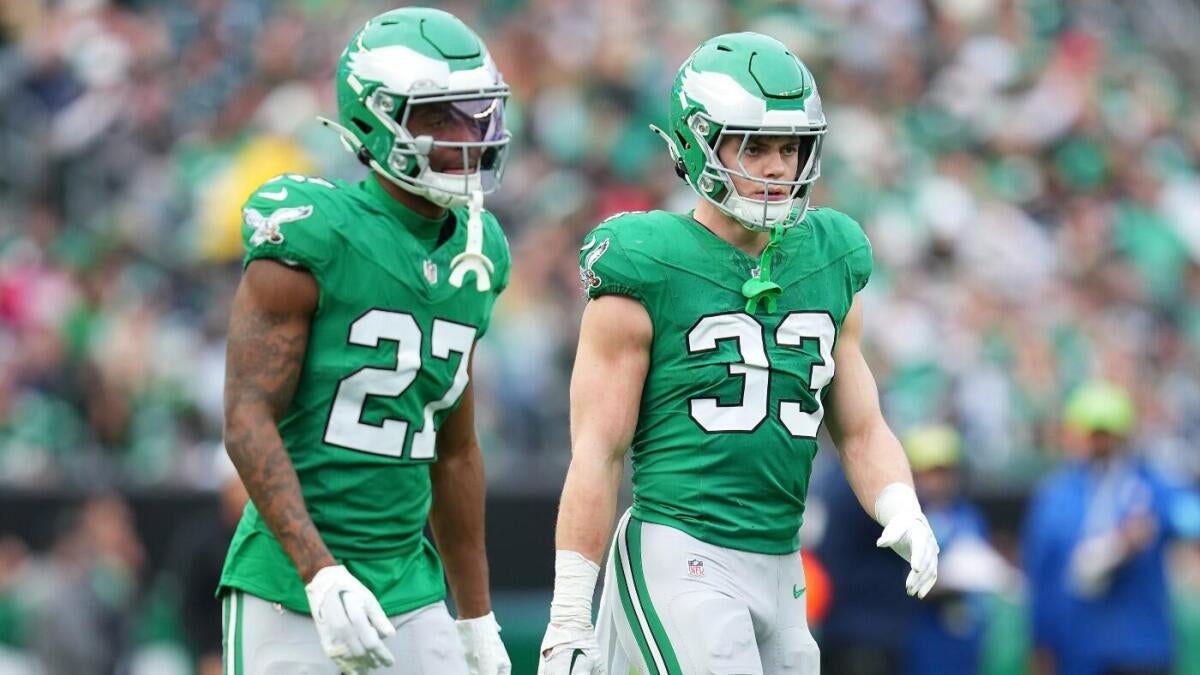The Philadelphia Eagles’ 2024 rookie class, highlighted by defensive backs Quinyon Mitchell and Cooper DeJean, has significantly altered the team’s defensive landscape. Their unexpected yet transformative contributions demonstrate how rookie talent, when effectively scouted and developed, can become a cornerstone for a franchise competing at the highest level. This report explores their rise, roles, and broader impact on the Eagles’ identity, offering insights into the evolving nature of NFL defenses and team-building strategies.
Rookie Breakouts: From Prospect to Defensive Anchors
Mitchell and DeJean entered the NFL with modest expectations, viewed as raw talents requiring adjustment time. Selected in the first and early second rounds (22nd and 40th overall), their rapid acclimation to the NFL’s pace was nothing short of remarkable. Rather than being sidelined to learn over an extended rookie year, both quickly embraced complex defensive schemes and demonstrated on-field intelligence akin to seasoned veterans.
Their proficiency in coverage defined much of their rookie seasons. They exhibited a unique combination of speed, anticipation, and physicality that limited quarterbacks’ options and disrupted passing attacks. This capability was crucial in elevating the Eagles’ secondary to one of the league’s most formidable units. The rookies’ effectiveness was not just statistical but strategically impactful, providing the defensive front seven with the confidence to be more aggressive, knowing the secondary could handle man-to-man challenges reliably.
Defining Moments on Football’s Biggest Stage
Cooper DeJean’s standout moment came during the Super Bowl when, on his 22nd birthday, he intercepted Patrick Mahomes and returned the ball for a touchdown. This iconic pick-six not only influenced the game’s momentum but symbolized the rookie impact on Philadelphia’s championship run. It showcased DeJean’s ability to perform under extreme pressure, affirming his maturation from an intriguing draft pick to a decisive game-changer.
This pivotal play exemplified the broader theme of rookies stepping into leadership roles and making crucial plays on critical occasions. DeJean’s mental toughness and situational awareness highlighted the readiness the Eagles nationalized in their young defenders.
The Role of Mentorship and Team Culture
The rookies’ successful transition was underpinned by veteran guidance, particularly from Darius Slay, whom Mitchell and DeJean were poised to succeed. Slay’s mentorship was instrumental in refining their technical skills, from route recognition to coverage adjustments. This close mentorship avoided common rookie pitfalls, enabling these newcomers to gain confidence and polish their game rapidly.
Philadelphia’s team culture fosters a developmental approach, which allows youthful players to integrate seamlessly. The coaching staff’s trust in starting and entrusting rookies with significant responsibilities accelerated their growth and instilled a mindset oriented towards continual learning. This approach illustrates the balance between nurturing talent and demanding performance.
Tactical Evolution Fueled by Rookie Talent
The infusion of Mitchell and DeJean into the Eagles’ secondary catalyzed a defensive transformation. Their versatility enabled defensive coordinators to deploy aggressive cover schemes and flexible man-to-man matchups. With their coverage securing the backfield, linebackers and defensive linemen could amplify pressure on opposing quarterbacks confidently.
Their impact reverberates beyond individual performances; the duo has reshaped Philadelphia’s defensive identity. Comparisons to historic Eagles cornerback tandems underscore how quickly they have become foundational to the team’s strategy and long-term planning. Their presence forces opposing offenses to alter their approach, underscoring the tactical ripple effect of their play.
Off-Field Influence and Team Dynamics
Mitchell and DeJean’s influence transcends athletic performance. They have cultivated a strong rapport with teammates and fans, characterized by approachable and engaging personalities. Their camaraderie contributes positively to team chemistry, strengthening unity and morale. Such off-field relationships often underpin on-field cohesion, contributing to collective success.
Additionally, their grounded approach despite rookie success ensures personal and professional growth continues unabated. Maintaining focus on development rather than past accolades signals a maturity that bodes well for sustained contributions and leadership roles within the franchise.
Projecting the Future: Sustained Excellence and Leadership
Looking forward, both Mitchell and DeJean appear poised to remain pivotal figures in Philadelphia’s defense. Their continued participation in voluntary sessions and offseason development indicates an ongoing commitment to refining their craft. Beyond skill enhancement, they are beginning to embody leadership qualities vital for team culture and competitiveness.
The Eagles’ management plans to build around this youthful nucleus, leveraging their rookie contracts to create a formidable defensive core for years to come. Their impact extends beyond immediate results; they represent a strategic blueprint for integrating and capitalizing on young defensive talent to sustain championship contention.
Conclusion: Building a Defensive Legacy Through Youth
Quinyon Mitchell and Cooper DeJean symbolize more than rookie success; they mark a strategic victory for the Philadelphia Eagles in harnessing youthful prowess to redefine defense. Their blend of skill, poise, and character has created a formidable foundation for long-term competitiveness. From difficult coverage assignments to iconic plays on football’s grandest stage, their rookie seasons set an ambitious standard for themselves and the franchise. The Eagles’ faith in their youth encapsulates a new era of resilience and ambition, resonating far beyond the city and inspiring a wider NFL audience.











